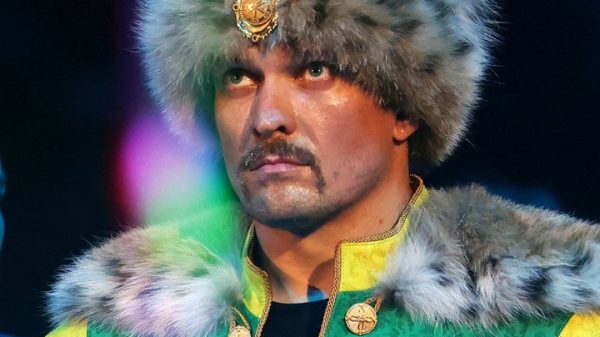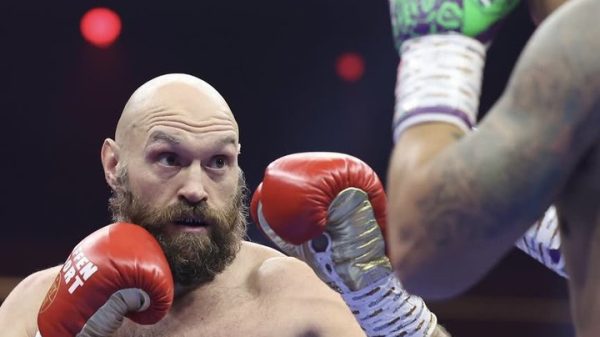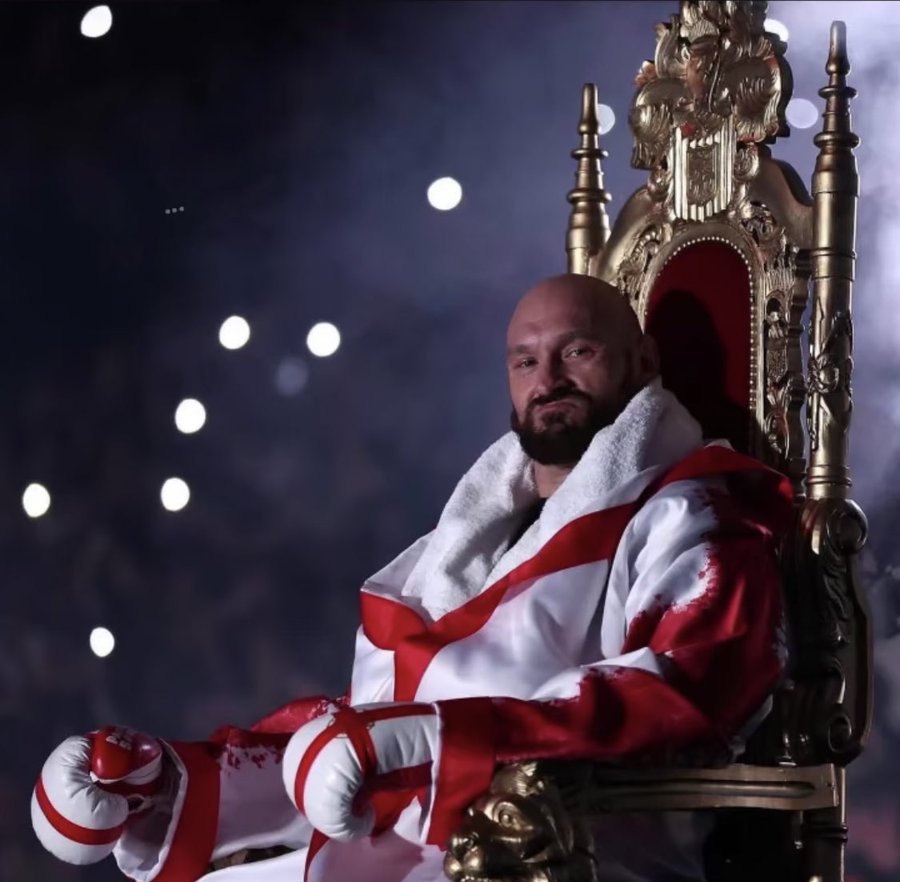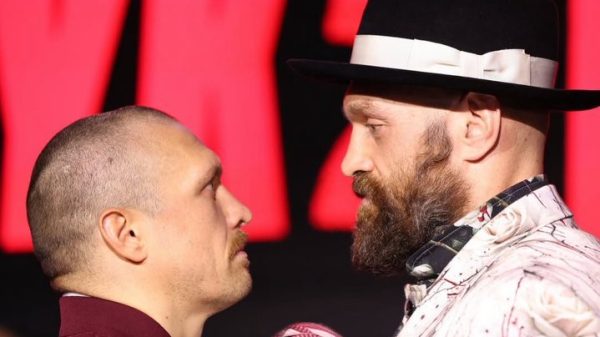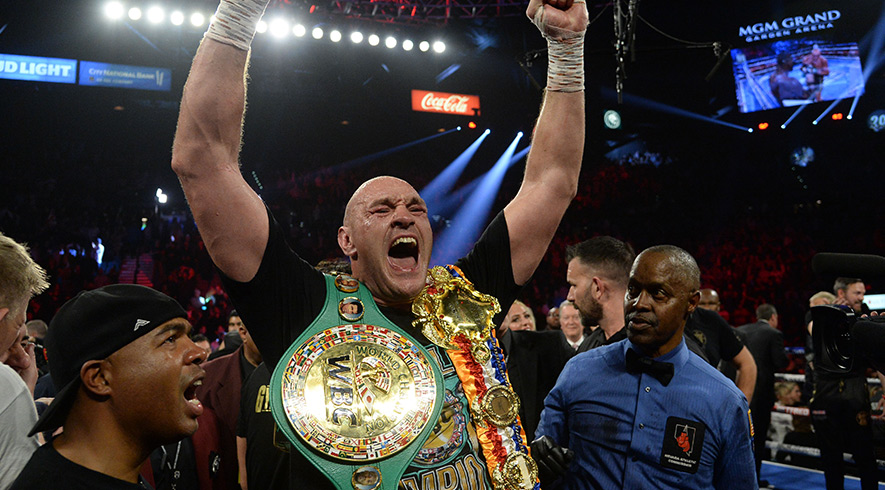By Tyson Bruce
After five years of painstaking negotiations that made the merger between AOL and Time Warner look like a lackadaisical stroll through the park, “The Fight” we’ve all been waiting for is finally here.
Initial Reaction and PBC Connection:
The reactions to official signing of the Mayweather-Pacquiao fight have been widespread and varied. The optimists among us are salivating that with both men not quite being what they were five years ago, the fight, from an entertainment perspective, will be better than ever.
The cynics, of course, view the bout as spoiled milk and resent the circus-like negotiations that were required to make the bout finally happen.
Whatever your reaction has been, there are an awful lot of people suddenly talking about boxing.
My initial reaction to the bout was much different. The most prevalent boxing storyline before the announcement of “the fight” was the formation of Al Haymon’s Premier Boxing Champion’s series and return of boxing to network television. Al Haymon, who Ivan Goldman has accurately dubbed the Godfather of boxing, is suspected to control nearly 170 world-class boxers and seems poised to take over the sport all together, at least in North America.
Not to be hyperbolic but the Mayweather-Pacquiao fight may be coming during a time when the sport is undergoing its largest structural changes since Marquess of Queensberry transformed bareknuckle brawling into the modern sport it is today. With boxing set to reappear on NBC, Spike TV and CBS the timing of “The Fight” may not be a coincidence. It’s not hard to imagine that if Haymon’s grand plan (whatever that may be) is successful, PBC may become its own “league” much in the way that UFC is for mixed martial arts.
With that in mind, is it possible that the Mayweather-Pacquiao fight may be the last super-fight of its kind? Is the era of the rival promoters, premium cable PPV super bonanza drawing to a close? Regardless, with boxing set to enter the mainstream consciousness of America in a way that it hasn’t in decades, the Mayweather-Pacquiao fight takes on an added level of significance.
The eyes of the nation will be focused solely on boxing for one night and if the fight lives up to one hair of the hype that has been attached to it, then boxing as a whole will be elevated. In that sense, “the fight” has unintentionally (or intentionally) become a gigantic piece of bait for the general public’s future interest in professional boxing.
The Hero vs. The Villain:
In the promotion of a major boxing match, one man is always portrayed as the gallant white knight and the other is portrayed as the villain. Although these kinds of clichés seldom hold true in reality, it is and will continue to be boxing’s most reliable motif for selling a fight. Never has this dynamic been more prevalent than in the case of Mayweather-Pacquiao.
Pacquiao is a fighter that comes from the same kind of linage as Roberto Duran and Julio Caesar Chavez in that he emerged from the rubble of his impoverished nation to become the source of folklore to his people. The passion with which he fights is the product of a life of near constant struggle to survive and translated into a fighting style defined by violent aggression.
Pacquaio’s outside the ring occupations, which vary from being a congressman in the Philippines to being a singer and a basketball player-coach, can come across as grating and egomaniacal in the same way that rock fans feel about Bono’s public attempts at portraying himself as the world’s savior. However, Pacquaio’s passion for his nation’s well being and public attempts at becoming a better man (he has renounced his former, not so admirable interests in womanizing, gambling and cock-fighting) resonate in an authentic way with the vast majority of us.
Mayweather, on the other hand, has only continued to become more reviled with time. Mayweather’s public persona has all the worst qualities of Mike Tyson—the conspicuous consumption, near constant brushes with the law, violence against women—but with none of the redemptive qualities that make Tyson the more mainstream figure he is today, admittedly long after his career has ended, and there is nothing left in it for him to play the bad guy at this point in his life.

Mayweather’s style, which he once described as a “bank robber” on 24/7, is oddly representative of his nature outside the ring. Mayweather sells a fight by using shrewdly slick sales tactics and wins the fight by implementing perhaps the slickest and most intelligent defensive stratagem in boxing history. Round by round Floyd takes away every weapon a fighter has and then coasts to the finish line as if almost to taunt the many haters that paid their hard earned money to watch him lose. A champion since the age of twenty-one, one can make strong argument that his streak of dominance is unmatched in boxing history.
The vast majority of what Mayweather does is by designed to sell fights, but even when he tries to be a good person, he someone manages to be equally as unlikeable. Remember his 24/7 Skype chat with the troops? Mayweather attempted to entertain a group of soldiers stuck defending our freedom in a war-torn place by counting stacks of money and showing of his gaudy mansion. It was so cringe-worthy and utterly self-unaware that it almost made me stop watching the program all together.
When you combine the polarization of personalities with the fact that the vast majority of the public believe that Mayweather bears the majority of the blame for the fight taking this long to come off, you have one of the most authentic “good guy vs. bad guy” fights in the history of the sport. And just like in the films, many people will be rooting for the bad guy to get away in the end.
Who Has the Mental Edge?
Assessing which fighter has the mental edge going into perhaps the biggest fight since Ali-Frazier 1 is one of the most intriguing factors in the build up to the fight.
When the fight was initially announced Teddy Atlas mused that Mayweather had the edge because of the many “concessions” Pacquiao was forced to make in the formation of the bout.
Generally speaking, the fighter who gets to dictate the terms of the bout gains some kind of leg up in an otherwise evenly matched contest. Just think of the way Leonard used the negotiation table to throw off Hagler going into their 1987 mega fight. More recently, you could say the same thing about the Miguel Cotto-Sergio Martinez fight, where the challenger dictated to the champion the rules of combat. Mayweather is certainly the A-Side in this fight as he will be receiving a favorable 60-40 purse split and was the deciding factor in nearly every major plot detail in the bout’s contract.
There is, however, an alternative view one can take on this. It’s possible that going into this bout Pacquiao is the guy with less to lose than Mayweather. Mayweather has always been the chief decision maker in who he fights and is very rarely–if ever–a slave to public demand. The last time he was the B-side of anything was against Oscar De La Hoya, but that was a highly winnable fight for Floyd and one that was required in order to take the crown. Since that point, Mayweather has been the master and commander of his own destiny. For that brief moment between 2007-2008 it seemed like boxing was his sole possession.
The public opinion of Floyd’s undisputed dominance began to change when just twenty some odd months later Manny Pacquiao jumped from lightweight to welterweight and turned De La Hoya’s pretty face into a Jackson Pollack painting. Since that moment, the public has been riding Mayweather to take the one fight he could conceivably lose. He has responded by taking basically any other fight possible and despite hurling the occasional YouTube racial slur has done his best to pretend that boxing’s consensus number two fighter doesn’t exist.
When Pacquiao got put to sleep by a Juan Manuel Marquez right hand in 2012, it looked like Floyd may have won the battle of public opinion by virtue of default. However, Pacquiao’s resurgence to the top of the sport and the public’s dwindling interest in Mayweather’s flamboyant persona (as seen by his declining PPV numbers) sparked a second wave of fervent demand for the fight.
Wherever Mayweather went, the he was haunted by Pacquaio: be it being booed at basketball games, never ending questions from reporters or networks executives at CBS, who were sweating out the arm pits of their silk shirts because “the deal of the century” with Mayweather was turning out to be the dud of the century for them. Pacquiao, usually very restrained, even took to publically shaming him in a Foot Locker commercial that aired nation-wide. Regardless of the many complications in making the fight with Pacquaio a reality, one always got the sense that if Mayweather wanted the fight to happen, it would happen.
If you are of the opinion that Mayweather was forced to take the fight with Pacquaio then it puts “Money” in a position he’s never been in before.
For Pacquaio, who gives off the impression of being a much less complicated man, one gets the sense that this is just another boxing match for him. A big, big boxing match but a boxing match nonetheless. For Mayweather, the prohibitive favourite, the fight with Pacquiao will be the fight that defines his legacy.
A loss for Pacquiao doesn’t really change where he stands in the history of boxing because of his accomplishments in the lower weights. A loss for Mayweather, who is widely perceived to have a skill and size advantage, would be utterly devastating to his standing among the very elite all time greats. That’s a kind of pressure that is unique even to the career of Floyd Mayweather.

